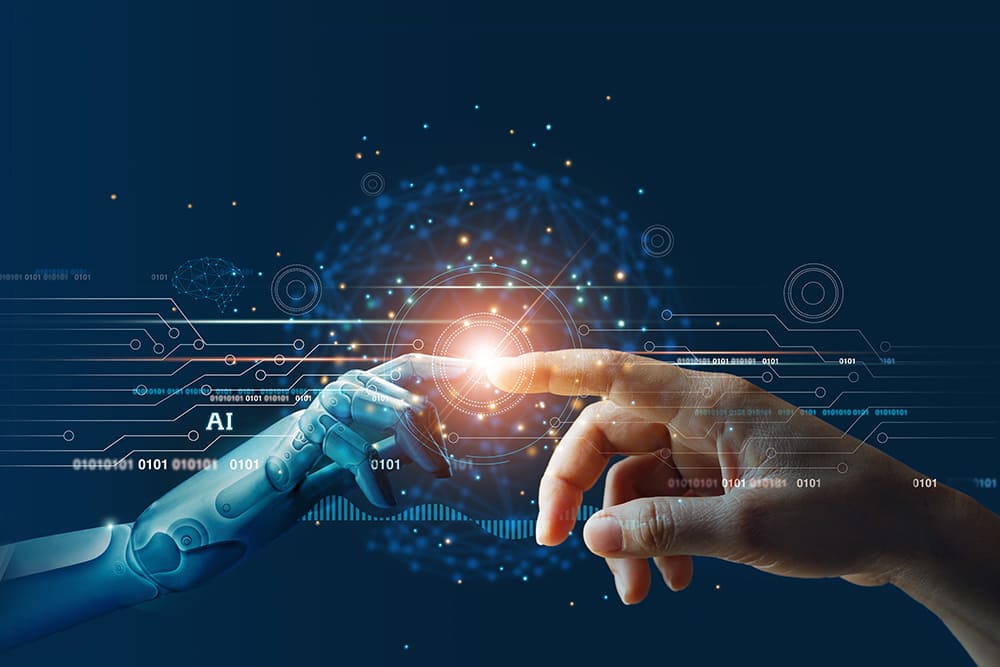Transformative Healthcare: Exploring Artificial Intelligence Applications
Artificial Intelligence in Healthcare

Artificial Intelligence (AI) has ushered in a new era in healthcare, transforming how we diagnose, treat, and manage diseases. Here’s a glimpse into the human-friendly world of AI applications in healthcare:
“AI Applications in Healthcare”
Artificial intelligence applications are used in healthcare to support a variety of medical and administrative procedures within the facility. The evolving AI technology is making healthcare AI applications more sophisticated to perform human duties more efficiently, speedily, and at minimum costs.
There are some fascinating uses of AI in healthcare, including chatbots, virtual nursing assistants, managing medical records, mapping diseases, discovering new drugs, and much more. Today, let’s focus on three major AI applications in healthcare for 2023 that are making a significant impact.
#1 Disease Diagnosis and Treatment:
The influence of AI applications in clinical diagnosis and treatment is growing. Leading AI technologies like Machine Learning and Deep Learning are key in assisting diagnosis, treatment mapping, drug discovery, and risk identification.
“For example, Infervision uses Deep Learning techniques to identify lung cancer based on X-Ray, CT, MRI, and text descriptions of symptoms and diagnostic reports. The company has worked with multiple top-notch hospitals in China to identify lung cancer in its early stage.”
#2 Precision Medicine:
Precision medicine is an AI-powered medical model aiming to customize treatment and prevention strategies for a particular disease based on the individual’s genetics, lifestyle, and environment.
“For example, The Neaman Center for Personalized Medicine (NCPM) leverages EHR to empower the clinical decision support system for incorporating genomics in healthcare by overcoming clinician and patient barriers. It helps them classify cancer patients and, through DNA sequencing, recommend a treatment plan.”
#3 Surgical Assistance Robots:
Advancements in AI technology have enhanced the precision of micro-surgical robots. Surgeons can now conduct intricate procedures without extensive incisions, all thanks to these AI-driven surgical robots. The AI-powered surgical robots use computer vision to successfully navigate to a specific body area avoiding nerves and other obstacles.
“For example, The da Vinci Surgical System. Surgeons can easily control it and use it for minimally invasive surgery. A surgeon can see inside the patient’s body with optimum detail and take minute incisions that are impossible for human hands by leveraging magnified 3D and HD vision in the da Vinci System.”



Leave a Reply